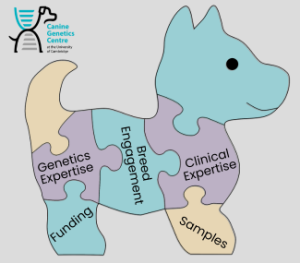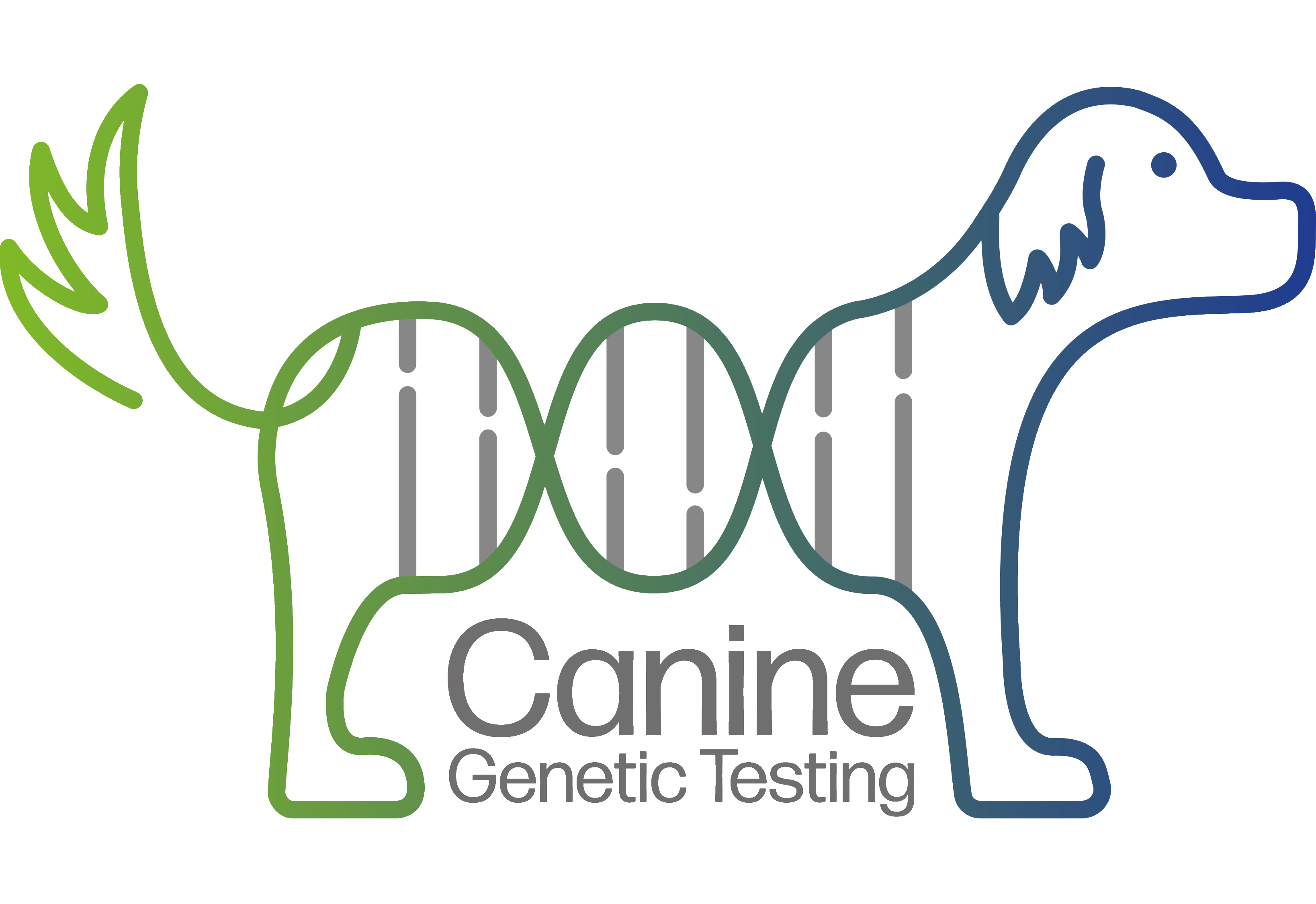 A question that members of the Canine Genetics Centre (CGC) are sometimes asked is how we decide which diseases to investigate. The answer depends on a number of factors, the most important of which are DNA Samples, clinical expertise, breed community engagement, genetics expertise and funding.
A question that members of the Canine Genetics Centre (CGC) are sometimes asked is how we decide which diseases to investigate. The answer depends on a number of factors, the most important of which are DNA Samples, clinical expertise, breed community engagement, genetics expertise and funding.
More details on each are given below, but remember we need all of these things, as a minimum, to be able to proceed with any investigations.
DNA Samples. The CGC can only investigate the genetics of an inherited canine disease if we have DNA samples from affected dogs (cases) and from breed-matched healthy dogs (controls) with which to compare them. The number of affected and unaffected dogs that we need samples from depends on the mode of inheritance of the disease under investigation. If we have good reason to think that the disease is likely to be caused by a single mutation, in other words we have reason to think it is a monogenic/Mendelian/simple disease, then DNA from a small handful of affected dogs might be sufficient for us to identify the causal mutation, provided we also have DNA from a few dozen unaffected dogs of the same breed. Diseases that are likely to be monogenic include forms of progressive retinal atrophy and some neurological diseases. If however, the disease is likely to be complex, such as idiopathic epilepsy and most forms of hereditary cataract, then we need DNA from tens, and ideally hundreds of affected dogs along with a similar number of unaffected controls.
Clinical Expertise. The DNA samples that the CGC uses for its investigations must be collected from dogs that have received a robust diagnosis of the disease under investigation. It is therefore essential that all affected dogs have been examined by a veterinarian, and the appropriate tests/scans/examinations have been performed. Frequently the diagnosis needs to have been made by a specialist, as is the case with most of the inherited eye diseases that the CGC investigates.
Breed Community Engagement. It is very rare that the CGC is able to investigate an inherited disease successfully without engagement from the relevant breed community. This is because of the requirement for DNA from affected and unaffected dogs, as detailed above, which frequently requires the dogs to have been diagnosed by a specialist veterinarian. Engagement from the breed community is especially true for the complex disease, due to the large number of samples that must be collected before any investigation can begin. Generally speaking, the better the breed community is at promoting the study and encouraging stakeholders to participate, the quicker the required number of samples can be collected, and the research can begin.
Genetics Expertise. The CGC staff have a lot of experience investigating a wide range of inherited canine diseases and have the skills, expertise and infrastructure to investigate most diseases. Nevertheless our research is frequently undertaken in close collaboration with other genetics researchers and clinical colleagues.
Funding. Research is expensive and funding is required for every disease investigation that the CGC undertakes. The CGC is based at the University of Cambridge, and benefits from the University’s infrastructure and support staff. But the University doesn’t provide any funding for the research itself, meaning it all has to come from grants to external funding bodies or from donations form stakeholders. It costs around £400,000 a year to run the CGC, so fundraising takes up a lot of our time.
When all five of these jigsaw pieces are in place the CGC can begin to investigate the genetics of the disease in question, and all being well, make progress towards identifying the genetic variants that underpin the disease. And of course the ultimate aim is a genetic screening tool that breeders can use to eliminate the disease from the populations slowly, and without loss of genetic diversity.
Contact us. Any breed community that is concerned about a particular disease is encouraged to contact the CGC to discuss the feasibility of an investigation. CGC will happily advise on how to collect and submit DNA from cases and controls, how many samples that are likely to be needed and what the relevant costs are likely to be.
Please support the Canine Genetics Centre. If you would like to help support the Canine Genetics Centre, please consider becoming a Friend of the CGC. Becoming a Friend of the CGC is easy. Simply set up a direct debit for £5 or more ($10 in the United States) a month. That’s it. But by making a regular donation you will be contributing to the future financial stability of the CGC. All our Friends receive a lapel pin as a token of our thanks and also the opportunity to nominate someone they know for the new CGC Health and Welfare award.


Comments are closed